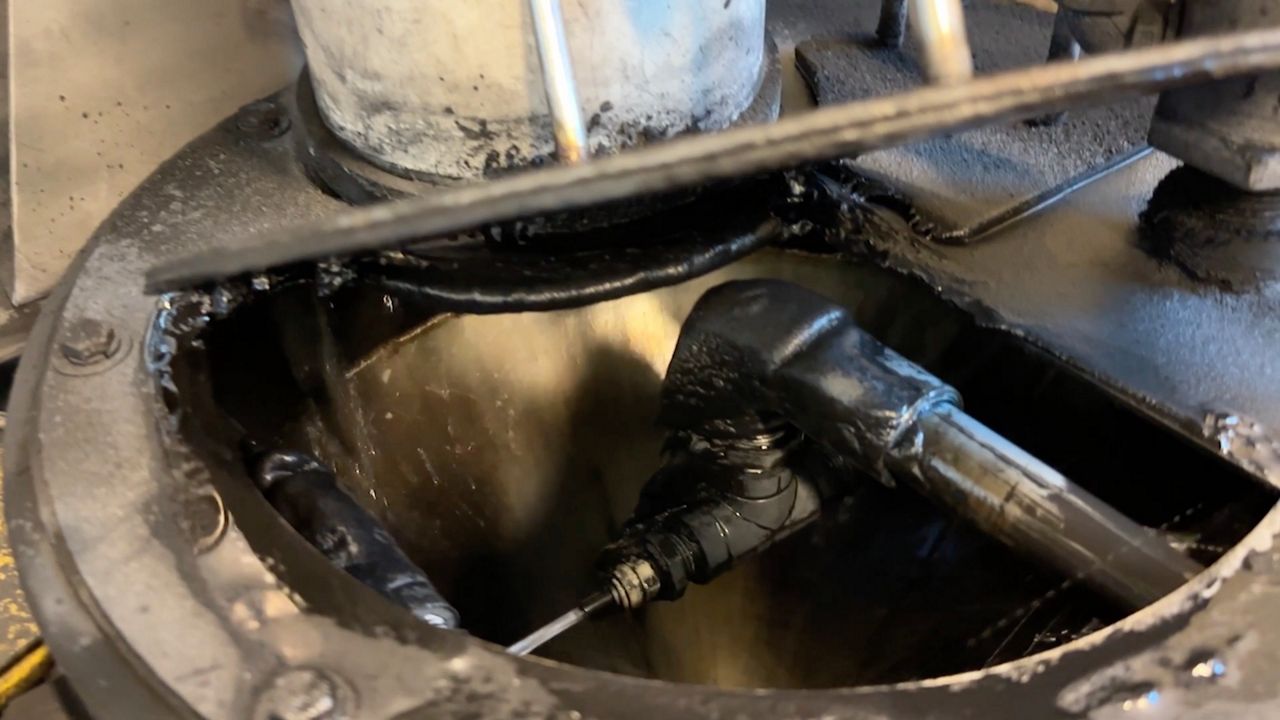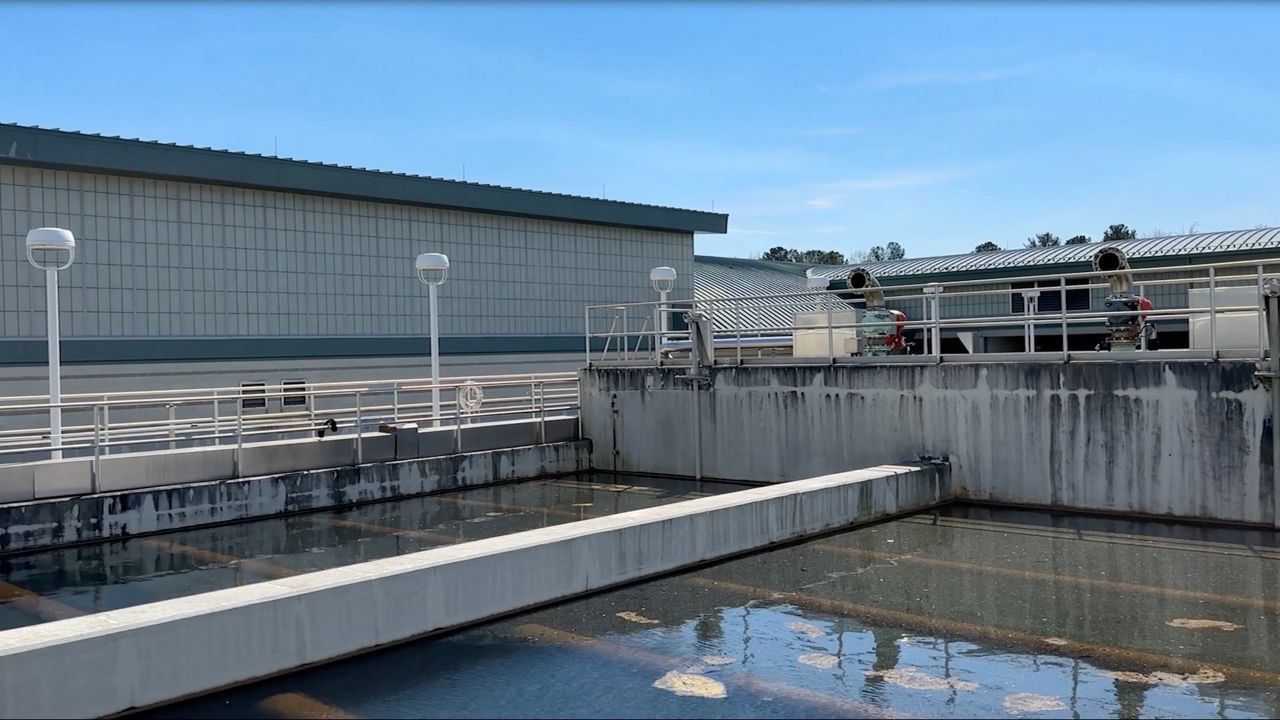RALEIGH, N.C. — In March, the Environmental Protection Agency proposed a new national drinking water standard to limit certain PFAS chemicals. They say it’s a key step to protecting public health.
Over the past month, water departments across North Carolina have been looking into how these limits will change their cleaning processes.
Related: In Focus: Clean water in N.C.
Ed Buchan has worked with Raleigh Water for 18 years and says it’s a complicated system of chemicals, filters and machinery.
“I’m really proud of the treatment technology and performance that we have at both of our plants,” Buchan said.

The water goes through an ozone system, powdered activated carbon, many filters and UV lights — just to name a few of the steps.
When the powdered activated carbon is injected into the water, it helps keep the H2O clean. It’s also one way to reduce PFAS.
“PFAS is an acronym for per and poly fluorinated substances,” Buchan said. “And they are incredibly common in our everyday life. They are in cookware. They're in waterproof fabrics, like your rain jackets. They're in lipstick. They're in dental floss. They're in toilet paper. They're in practically every aspect of your everyday life.”
The EPA says PFAS aren’t healthy in large quantities, so the agency is proposing a national standard to limit PFAS in drinking water to four parts per trillion. The standard currently allows up to 70 parts per trillion.
Buchan says Raleigh Water is already hovering just around the new proposed guidelines so it might not need to make major changes in its technology and processes. But there are still a lot of tests to make sure the water stays under the proposed limits.

Buchan also says every step of their drinking water process is essential to keep people safe, so he’s ready to take on whatever challenge the EPA throws their way.
“Anything that we do is for compliance,” Buchan said. “Keeping our customers safe, keeping the environment safe. So, you know, none of those are frivolous. They're all something we need to do.”
Buchan says in the long term, anytime the EPA proposes new standards, it might raise the need for new technology and more expensive products. In that case, utility bills could go up to cover the costs.








